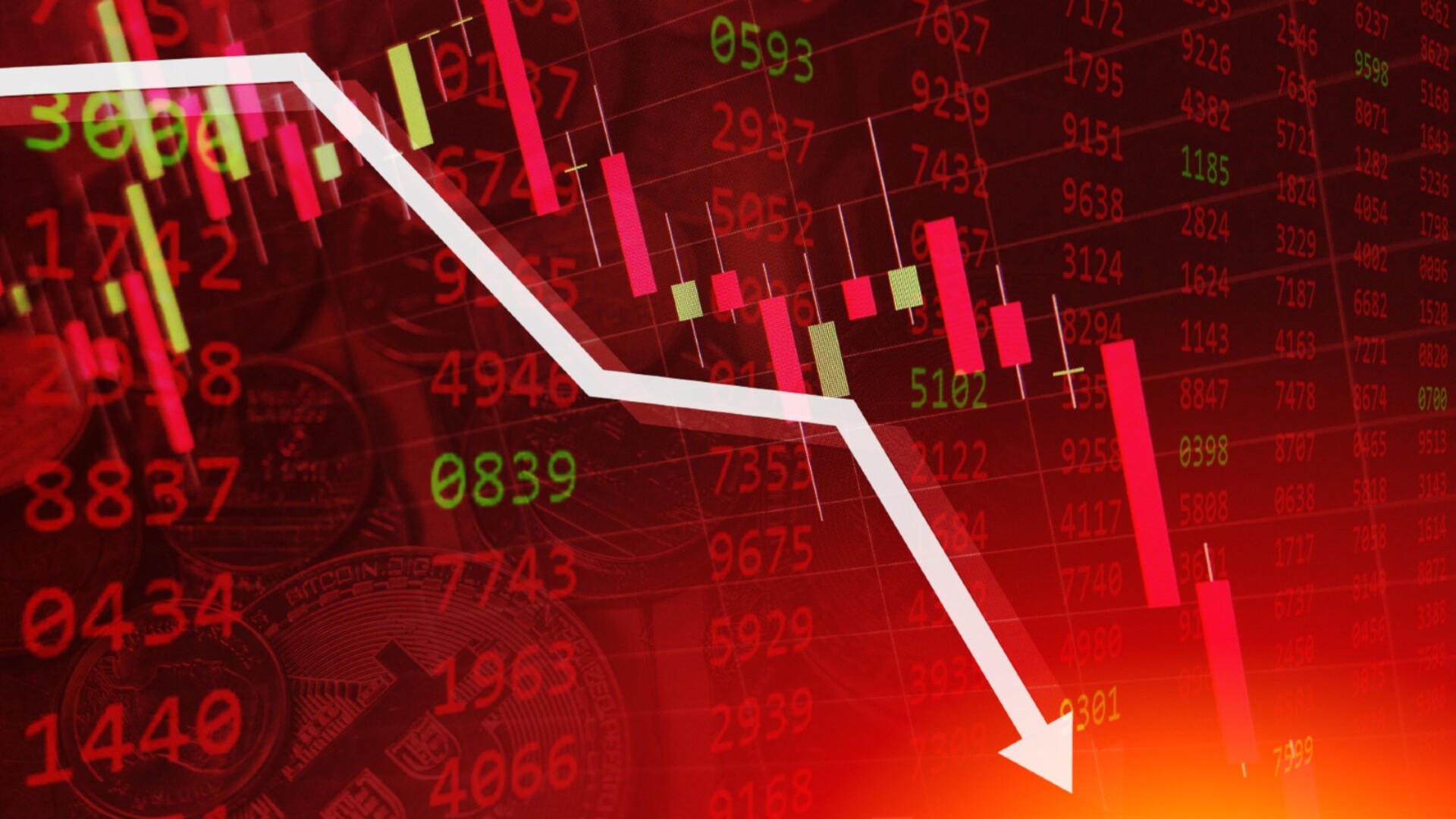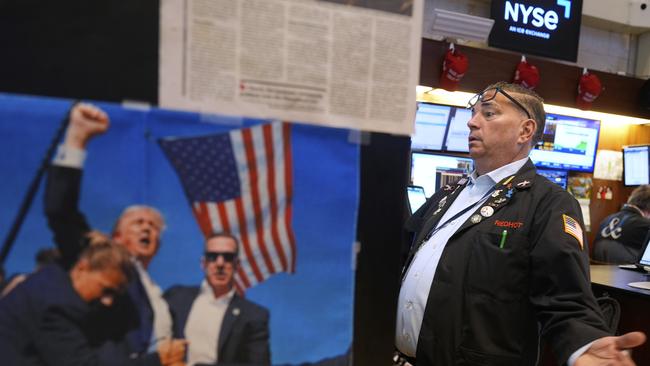What global market crash means for Australian superannuation, shares, mortgages
The Aussie dollar has plunged below 60 cents against the USD, while $160 billion was deleted from the ASX within minutes of opening on Monday. But what does that mean to everyday Australians and what should they do about it?

Business
Don't miss out on the headlines from Business. Followed categories will be added to My News.
Global financial market bloodbaths and a looming trade war have dominated headlines for the past week since President Donald Trump announced sweeping tariffs on imports to the United States.
But what does it all mean to everyday Australians and what should they do about it?
We’ve mapped it out here:
What’s happened and why?
The Aussie dollar has plunged below 60 cents against the USD, while $160 billion was deleted from the ASX within minutes of opening on Monday.
The ASX 200 plummeted 461.40 points or 6.02 per cent to 7,206.40 on the opening bell.
On opening, the Australian dollar was buying just 59.92 US cents – the first time it’s dipped below 60 cents since the pandemic-tainted April of 2020.
The tanking came in response to Mr Trump’s “Liberation Day” tariffs, which will most heavily affect major exporters like China, slugged with a 54 per cent total tariff, Japan, hit with 24 per cent, the EU, set to pay 20 per cent and Vietnam, hit with 46 per cent.
A full-blown trade war became less avoidable late last week as China announced retaliatory tariffs on US imports there.
Some economists say the US is headed for a recession after more than $5 trillion was wiped off the value of US shares in two days and commodities prices collapsed.
Which Australian companies have been hit hardest?
The ASX200 index has lost 8.26 per cent in the past five days, with energy and materials companies leading the charge to the bottom.
The biggest losers out of this week’s opening rout were energy company Worley Ltd, down 11.8 per cent as of 11.45am Monday; Capstone Copper, down 11.6 per cent; Palladin Energy, down 11.3 per cent; and uranium outfit Deep Yellow Ltd down 11.2 per cent.
Digital financial services company Zip Co was down 11 per cent.
Losses were also deep among the most popular ASX stocks: BHP was down 6.7 per cent; CBA was down 6.3 per cent; while healthcare company CSL was down a more modest 2.3 per cent.

What does it mean for superannuation account holders?
For many Australians, superannuation is their only direct exposure to financial markets – and those who checked their balances in the past week would not have liked what they saw.
That is, if they were able to check them at all – hack attacks on some of the nation’s largest funds – including Australian Super and REST – meant many members couldn’t see their balance or – more stomach-churningly – were shown a zero balance.
Despite the turgidity, most superannuation holders do not need to panic.
Super is a long-term investment, and funds build resistance to volatility into their portfolios by balancing their more risky share investments with the conventionally-safer cash and bonds.
You can check with your fund and find out whether your account is set up for riskier high-growth – often best suited for younger workers – or more conservatively.
For those nearing retirement who have not already spoken to their funds about shifting to a safer, more cash-heavy portfolio, it’s always worth a chat with them and/or your financial adviser.
What does this mean for my mortgage?
One promising thing for Aussie mortgage holders is the potentially increased chance of an interest-rate cut at the next meeting of the Reserve Bank of Australia on May 20.
All four big banks are now predicting a rate cut, with ANZ predicting another two by the end of the year.
Provided these are all passed on by lenders, they would provide much-needed relief for mortgage holders.
Should I sell my shares? Should I buy more?
There’s no right answer to these questions, but there is one universal rule – don’t panic.
There’s a lot to consider – selling now could lock in your losses, while buying more risks further spiralling.
Think about why you’re investing – is it for the long or short-term? Consider your goals, your experience and your appetite for risk.
There are no crystal balls, but if you don’t know the answers, seek professional advice before doing anything hasty.
More Coverage
Originally published as What global market crash means for Australian superannuation, shares, mortgages




